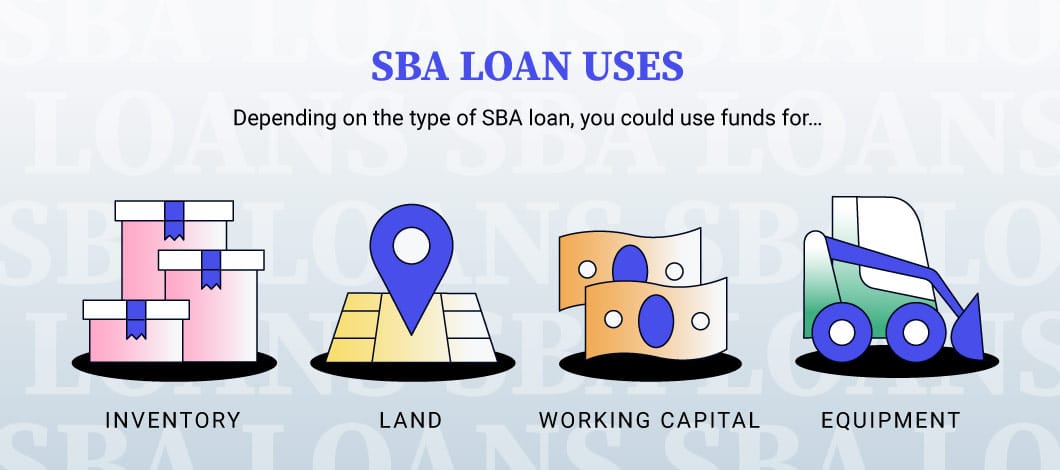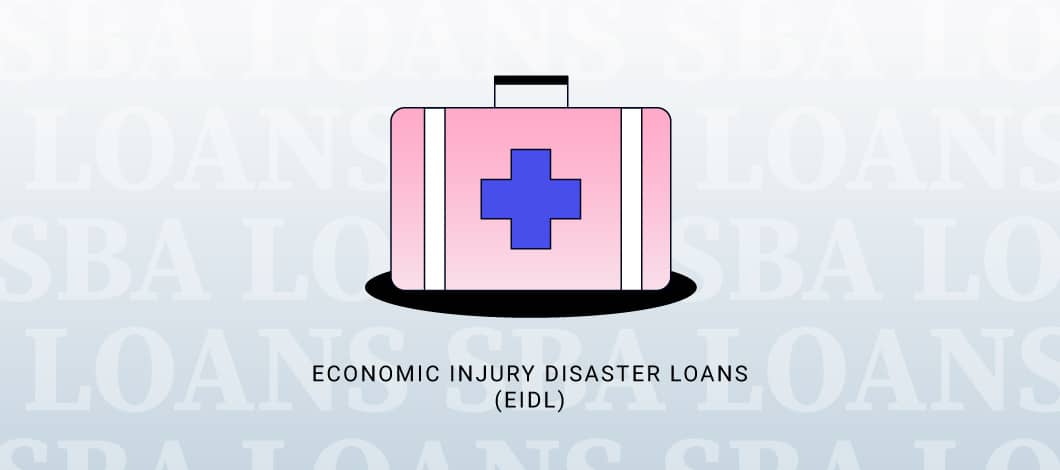The use of proceeds from Small Business Administration (SBA) loans varies depending on the loan type. Funding uses may range from real estate acquisitions to inventory purchases to working capital, among others.
In addition to what SBA loans can be used for, it’s also important to keep in mind that there are also some things SBA loans cannot be used for. Additionally, depending on the industry, certain businesses are ineligible for SBA loans.
Use of Loan Proceeds by SBA Loan Type
SBA loans or lines of credit were the No. 1 funding type for which small business firms applied, according to the 2022 Federal Reserve Banks’ Small Business Credit Survey. For loans guaranteed by the SBA, the use of proceeds is as follows:
Standard 7(a) Term Loans
Standard 7(a) loans are the most common SBA loan program. Funds are available up to $5 million, with terms extending up to 7 or 25 years depending on the use of proceeds.
You can take out a 7(a) loan for these business expenses:
- Business startup
- Expansion
- Renovation
- New construction
- Land or buildings
- Equipment
- Fixtures
- Inventory
- Working capital
- Leasehold improvements
- Debt refinancing for compelling reasons
Related: SBA 7(a) vs. 504 Loans: Which One Is Right for Your Small Business
504 Loans
SBA 504 programs are offered in part through certified development companies and a secondary lender. The purpose of the loan and reasons you can use funding include long-term fixed assets that promote job creation and growth.
These include investing in the following:
- Land
- Existing buildings
- New facilities
- Machinery and equipment
- Improvement of utilities, parking lots, landscaping and other existing facilities
However, 504 loans cannot be used for working capital, inventory, repayments, refinancing, debt consolidation, speculation or real estate investment.
Express Loans
If you appreciate the competitive rates and terms SBA loans provide but need funds faster than the average SBA loan takes to fund, an Express loan is a great option. Though the SBA isn’t the end-all to the application process, the agency says it responds to applications within 36 hours. Loans up to $500,000 are available under this program.
Funds can be used to:
- Buy real estate
- Finance equipment
- Refinance debt
- Get working capital
- Cover operating costs
CAPlines
CAPlines are revolving credit lines guaranteed by the government agency, of which there are 4 types: working capital, contract, seasonal and building.
You can use these SBA loans for these expenses:
- Seasonal needs
- Construction costs
- Short-term working capital needs
- Consolidation of short-term debt
- Advances against existing inventory and receivables
Microloans
With SBA microloans, approved borrowers can access up to $50,000, which can be used for the following:
- Working capital
- Supplies
- Machinery
- Equipment
- Fixtures
Unfortunately, if you’re looking for a small business loan to pay off debt, SBA microloans aren’t for you. Additionally, funds cannot be used for real estate.
Economic Injury Disaster Loans
Economic injury disaster loans (EIDL) are for businesses that are located in a declared disaster area and have suffered a substantial economic injury.
Funds can be used for the following:
- Office supplies
- Inventory
- Utilities
- Rent
- Web hosting
- Accounts payable
- Business and merchant fees
- And other day-to-day expenses
- Professional services (e.g., accountants, bookkeepers)
That said, EIDL funds can’t be used for these expenses:
- Relocation
- Bonuses
- Dividends
- Facility expansion
- Fixed asset acquisition
- Repair of physical damage
- Federal loan repayment
- Repayment of stockholder/principal loans
- Draws and distributions to owners (except in specific situations)
Find SBA loans and more.
Which Businesses Can’t Use SBA Loans?
Businesses ineligible for SBA loans include the following:
- Lending firms
- Loan packaging companies
- Speculation businesses
- Real estate investment firms
- Rare coin dealers
- Insurance companies
- Pyramid sales plans
- Gambling companies
- Investment companies
- Multi-sales distribution businesses
- Charitable or religious organizations
Also, businesses in which the owner is on parole are not eligible. Companies engaged in illegal activities do not qualify either.












